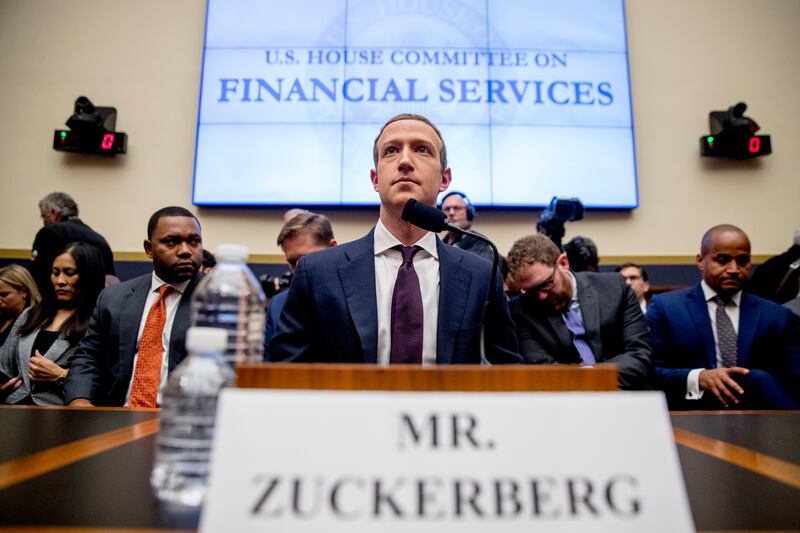Oct. 24, 1861 — 158 years ago today — marked the completion of the first transcontinental telegraph, connecting East and West by way of Salt Lake City, and forever changing the speed of communication across the country. It cemented America’s status as a nation of pioneers and innovators.
Whether Americans 158 years from now will speak of Facebook in the same tone of reverence is largely dependent on the company’s ability to prove it cares more for a legacy of progress than for profits at the expense of privacy.
On Wednesday, Facebook founder and CEO Mark Zuckerberg appeared before the House Financial Committee to answer questions about the company’s emerging cryptocurrency project, Libra. The initiative aims to fundamentally reinvent the global monetary system by utilizing a central digital currency built on blockchain technology and backed by a reserve of real assets.
Add this appearance to a growing list of Washington trips. Last week, Zuckerberg spoke at Georgetown University about free speech. A few weeks ago he met with President Donald Trump and Republican lawmakers to dispute claims Facebook prioritizes content that is left-leaning. And last year Zuckerberg visited Capitol Hill to respond to questions about Facebook’s handling of user data and privacy concerns. In Zuckerberg’s own words, Facebook has, “faced a lot of issues over the past few years.”
Obviously, the company has trust issues. Still, Zuckerberg gave lawmakers a poignant reminder Wednesday about the role freedom plays in moving forward: “If America doesn’t innovate, our financial leadership is not guaranteed.”
It’s a good point. Without innovation, America risks its leadership status to countries that are also pushing toward technological advances, notably China, whose own cryptocurrency is fully backed by the government. That loss could also mean a loss of influence for democracy and freedom.
Power, especially the power of tech giants, should not go unchecked. There ought to be a place for regulation and safeguards to prevent corruption. But lawmakers also should be careful not to disrupt the unique synergy of diversity, freedom and the First Amendment that nourishes creativity and innovation. It’s that balance that continues to set America apart. It was that balance that led to the transcontinental telegraph, the transcontinental railroad, the telephone, the lightbulb, the airplane and everyday items like the sewing machine and blue jeans.
Keeping American innovation at the forefront of industries around the world means keeping American expressions of freedom and democracy at the forefront of the world.
Keeping American innovation at the forefront of industries around the world means keeping American expressions of freedom and democracy at the forefront of the world. Efforts to push boundaries and operate outside the status quo in every industry should be encouraged, not squashed.
America’s freedoms are the root of its global leadership, and will be the reason it continues. Ed Feulner, founder and past president of The Heritage Foundation, argued the country’s founders had a belief that freedom from big government allowed ordinary people to accomplish extraordinary things. Historically, that theory rings true.
While America may have been watching Zuckerberg’s testimony Wednesday, the world is definitely watching America. To remain the powerhouse of freedom that it is, the U.S. needs to embrace leadership through innovation, and the innovators who will guide it there must know privacy and safety are not currencies to trade away.

